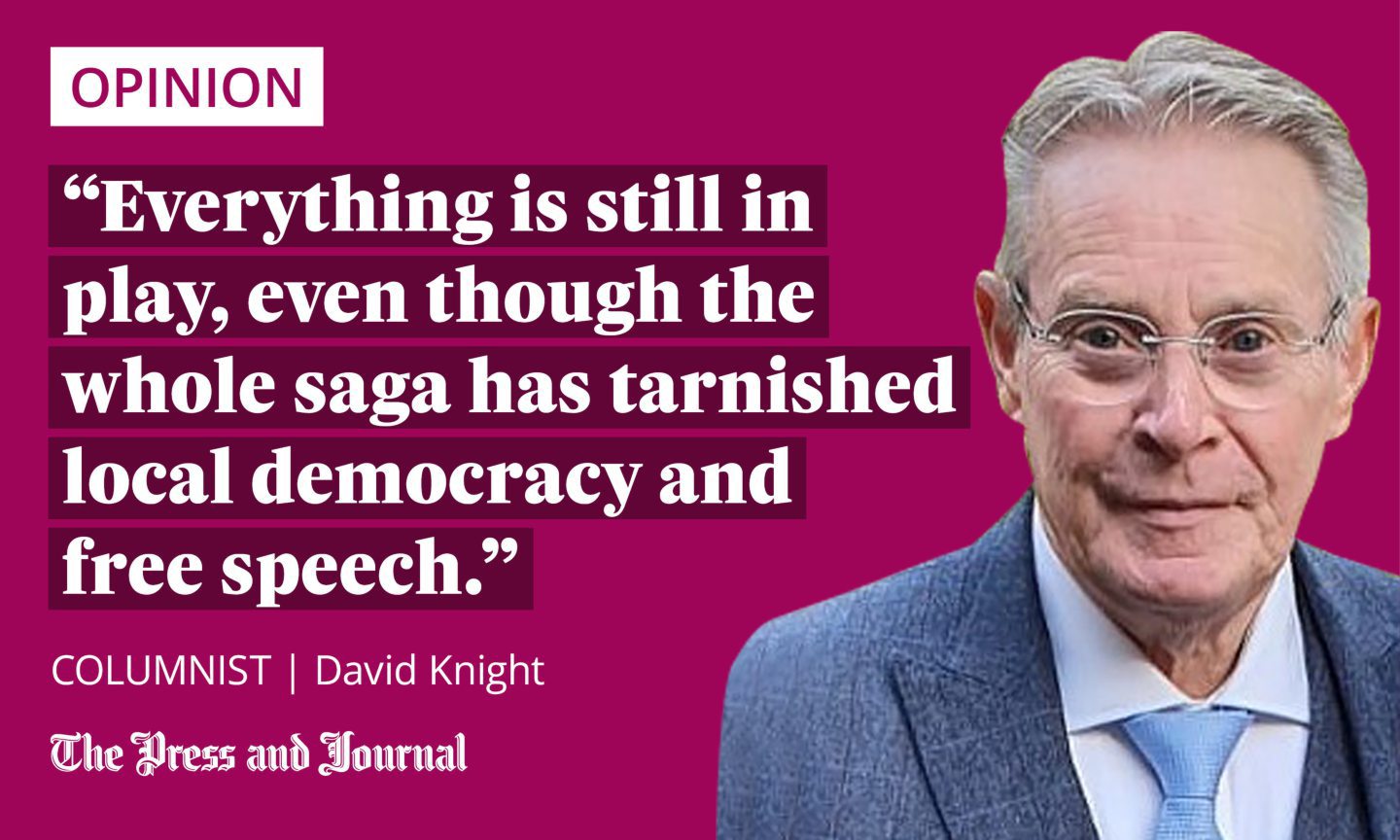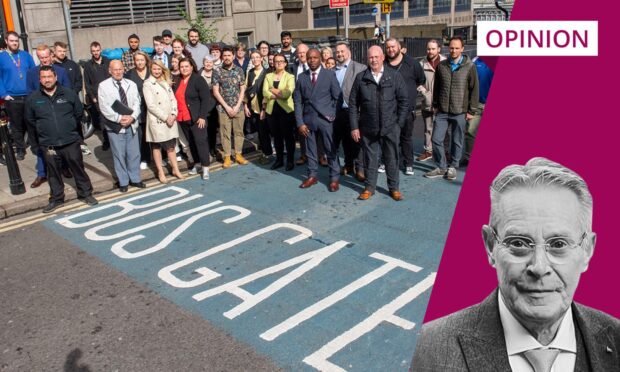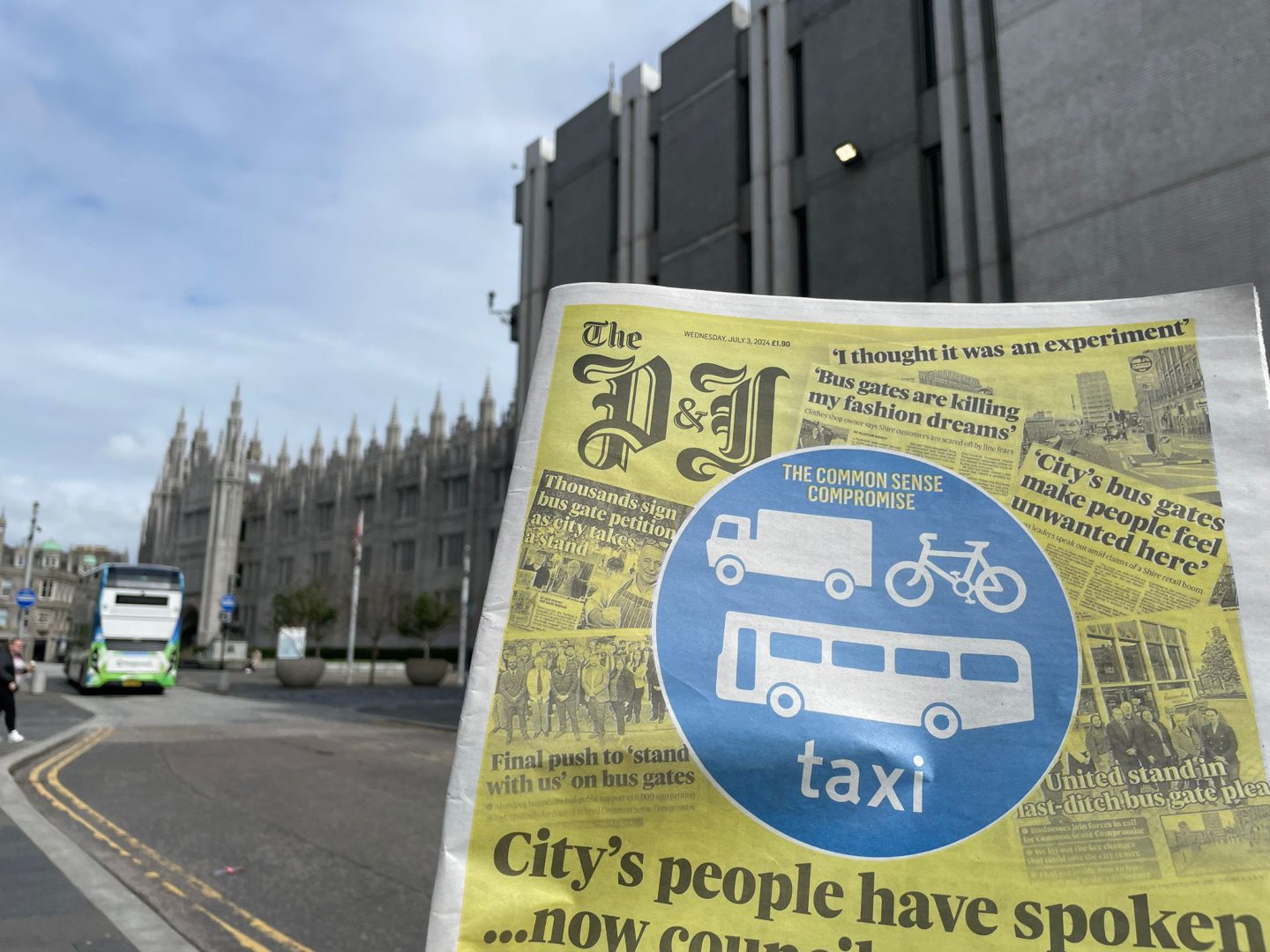It wasn’t exactly like storming the Bastille, but bus-gate protesters came pretty close as they amassed around Aberdeen City Council’s bunker.
In the sleepy world of local government, it must have seemed a mini-revolution – in this case, to loosen the bus-gate noose strangling businesses in the city. Quite appropriate, as the anniversary of the cataclysmic event which fuelled the French Revolution is marked this weekend.
Abuse of power was a factor in the historic uprising.
It also aggravates Aberdeen’s painful bus-gate saga where major streets were blocked to cars so the buses could run on time, with fines showered like confetti on drivers who strayed into these traps. Footfall into the city – its lifeblood – fell off a cliff, and businesses are collapsing.
Abuse of power because obscure traffic regulations were used by council officials, which allowed scant public consultation.
So, organised resistance by leading businesses, backed by thousands of ordinary citizens, and orchestrated by a Press and Journal campaign was impressive. But a delayed showdown at a full hearing of the council – to dilute the density of the gates – crashed into a brick wall.
It might have been a revolution outside, but pure music hall indoors, where Lord Provost David Cameron was doing a passable impression of House of Commons Speaker Sir Lindsay Hoyle.
You might recall Hoyle almost getting himself booted out of office after blocking an SNP amendment on a Gaza ceasefire in the Commons, to help Keir Starmer dodge an embarrassing Labour backbench revolt. Lord Provost Cameron found himself in danger paddling a similar flimsy boat.

Supposedly under pressure from the weight of the day’s business – but more likely the controlling SNP-Lib Dem coalition, keen to avoid political damage a day before the general election – he pushed the bus-gate debate down the agenda. So far that it eventually fell off the end of the table.
Luckily, a quick-witted Labour councillor ensured an emergency hearing within two weeks, thwarting the council’s attempt to kick it deep into summer while prolonging the agony for businesses.
So, everything is still in play, even though the whole saga has tarnished local democracy and free speech. It feels more and more as though the people of Aberdeen need protection from their own council.
The bus gates and running order were obviously within the lawful authority of the council, but had to be implemented with an impeccable sense of duty and fair play at all times – not with contempt for the man and woman in the street.
The writing might not have been on the bus gates, but it has certainly been on the wall for some time. Surely it is time for the council to show common sense and back off?
These protesters are not a rabble with a dubious political axe to grind, but respectable people with genuine concern for the future of Aberdeen and the damage they see the council is doing to it.
Time for sensible solution
Not that long ago, I accused Aberdeen City Council of building a bypass around common sense with the bus gates. So, I was pleased to see the Common Sense Compromise come alive, aiming to work with the council for a sensible solution.
It was also a classic example of how dangerous it is to write off local journalism in the modern world of social media nonsense.
Who else but The P&J could have held the council to account so robustly, and co-ordinated such a campaign so swiftly? Use it or lose it, as they say.
Now, everything rests on a make-or-break summit between campaigners, who have a 10,000-name petition behind them, and council leaders.
Co-leader Ian Yuill made promising noises ahead of this. But Yuill and Co must turn up armed with meaningful proposals to change the gates, or they might descend quickly into a Putinesque approach to “peace” talks.
Going forward, there must be concerns about the ease with which the council bypassed public consultation – followed by closing off this apparent loophole in local democracy.
£8 million should have been mentioned much earlier
At least one senior council official has warned darkly that the city will face an £8 million bill from the Scottish Government if it scraps the hated gates.
Surely this daunting scenario must have been laid before councillors in advance for detailed discussion, if not the public? So, we are entitled to see records of this – and be told when and where the debate took place.
It also seems to prove there was never any genuine intention to engage with public consultation after the event, as was promised
It also seems to prove that if such a penalty was hanging over the council like the Sword of Damocles, there was never any genuine intention to engage with public consultation after the event, as was promised; a sham, in other words.
Bus gates are trapped in a one-way street – the only option is to reverse.
David Knight is the long-serving former deputy editor of The Press and Journal
Common Sense Compromise
The Press and Journal is standing side by side with Aberdeen businesses and business organisations in an appeal to reach a Common Sense Compromise.
But we can’t do it alone – we need your help.
If you would like to back our Aberdeen bus gate campaign, add your name to the petition launched by Aberdeen and Grampian Chamber of Commerce HERE.
Other ways to show your support and have your voice heard can be found HERE.


Conversation